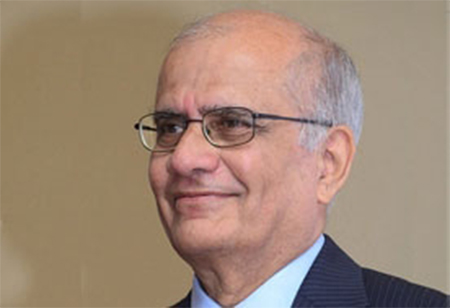How To Fail? A Prescription for Management Consultants
By Suresh Lulla, Founder & Director, BestPrax Club Pvt. Ltd
 Management consultants deliver reports. But do they deliver results?
Management consultants deliver reports. But do they deliver results?
Management consultants are manufactured. But do they have experience and wisdom of an advisor or catalyst?
Management consultants are a cost to clients. Each should aim to become an asset for the client.
These are some of the fractured equations that mar client-consultant relationship. In the process, clients become cynical about consultants because most of the executed assignments in India fail to deliver tangible results.
These are my views. There are many lessons I have learned over the past four decades, initially as a pure management consultant, and subsequently as a quality management facilitator. While these lessons are not exhaustive for the entire profession, they are significant. These lessons are born out of the facilitation guidelines taught to me by the quality guru, Dr J M Juran.
Solving the Wrong Problem
How often have you discovered that what you have solved and what the client had in mind are very divergent?
The problem is that we do not invest adequate time to understand the stated as well as latent needs of clients. We need to have a clear understanding of:
· What are the symptoms of the problem?
· How do these symptoms impact management performance?
· Are these symptoms: Specific? Observable? Measurable?
· Is the problem of a size that is manageable by third party consultant?
Only Hearing. Not Listening
Consultants need to ask questions. Clients need to listen. Clients need to ask questions. Consultants need to listen.
Only when the listening bridge is successful, can the communication be clear. But this does not always happen.
The communication skill of listening has never been taught. In school we are taught traits like seeing, reading, speaking, writing, hearing... but not listening!
Listening comes in two avatars: sympathetic listening and empathetic listening. In sympathetic listening I can agree even though I do not understand. In empathetic listening I first seek to understand and may subsequently choose to disagree.
Consultants must learn the art of empathetic listening.
Considering Root Cause Identification as the End of an Assignment
A problem is solved only when the remedy is implemented and results recur. Unfortunately, most consulting assignments end when the root causes have been established.
So we generate reports. We also generate supplements to these reports. We sprinkle terms and charts that are trendy. In the process we ensure that nobody understands the final report. Then we make PowerPoint presentations to upper management of the client who are far removed from the original problem.
The report gathers dust. There are no results. The consultant loses a reputation.
The success of a consulting assignment is measured by the traceable recurring results generated after the remedial actions have been implemented. Has market share increased? Has cycle time come down? Have warranty costs come down? Have wasteful costs come down?
Data Gathering Is Fully Delegated
Data gathering is one of the most misused tools used by clients and consultants. How often have you heard a senior instructing a junior "Go gather the data". Eventually, when the data is presented by the junior to the senior, the reaction is "This is not what I wanted!"
Why? There are several reasons:
· Brainstorming ideas are considered to be facts, i.e. data
· Seniors do not articulate what questions they are seeking an answer to
· Seniors do not articulate what types of information will help them to answer their questions
· Not knowing the types of information that will help answer the questions, juniors are at a loss as to what analytical/ quality tools they should use
· Available historic data is force fed to a tool that can eat it
· Gathering current data is time consuming
Much activity is generated. Not data that is needed for the information required to answer a question!
Ignore Resistance to Change
Change is simple when it involves machines and systems. Change is a problem when it involves people.
The stated reason for resistance to change by an individual is usually the impracticality of the technological solution.
However, riding on the back of the stated resistance to the technological change is an uninvited guest... the social consequence of the technological change, on the individual. The social consequence is not stated or obvious. It has to be understood by the consultant using empathetic listening skills, individual by individual.
A consultant cannot ignore the resistance. The consultant must define the resistance and deal with it.
Change has its own majestic pace. The consultant must be seasoned for that.
How to Succeed?
An effective consultant must have certain qualities in order to achieve success.
The first quality is that the consultant must have good communication skills... oral, written and listening. Any weakness here will erode the quality of delivery.
The second is that the consultant should have a very deep understanding of the client... through research and base line assessments. This prepares the consultant for the challenges ahead and enables the individual to identify specific skill gaps and therefore the balancing resources required.
The third is the art of gaining wide acceptability in the client organization. This comes from being trustworthy in terms of character and competencies. The absence of either hampers trustworthiness.
Finally, to achieve results on an assignment, the consultant must be a facilitator, trainer, coach, counselor, and recognizer.




